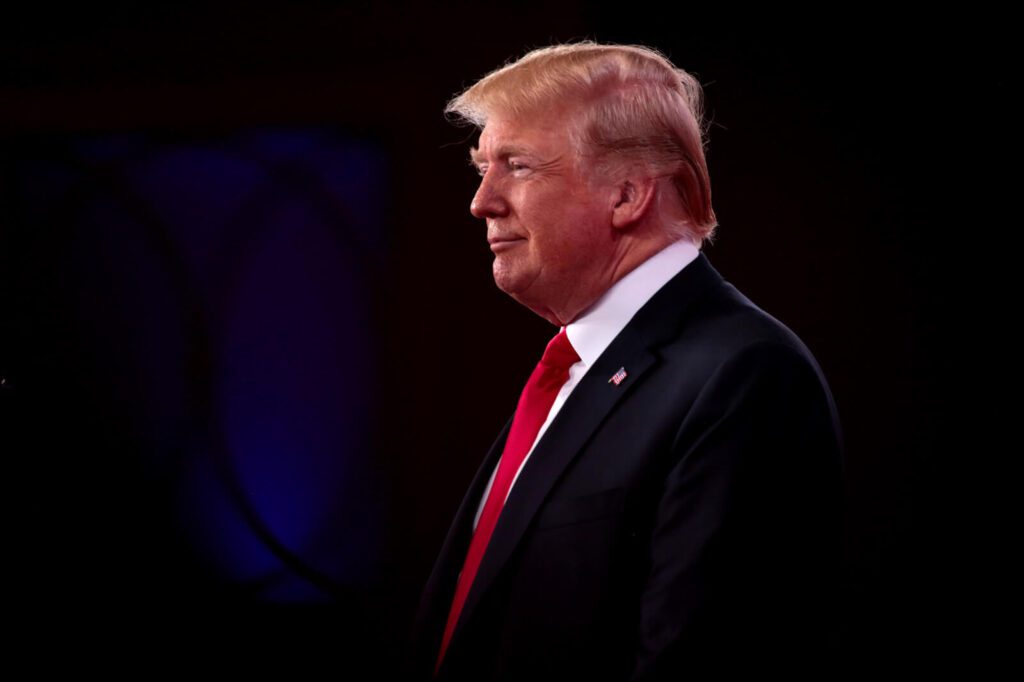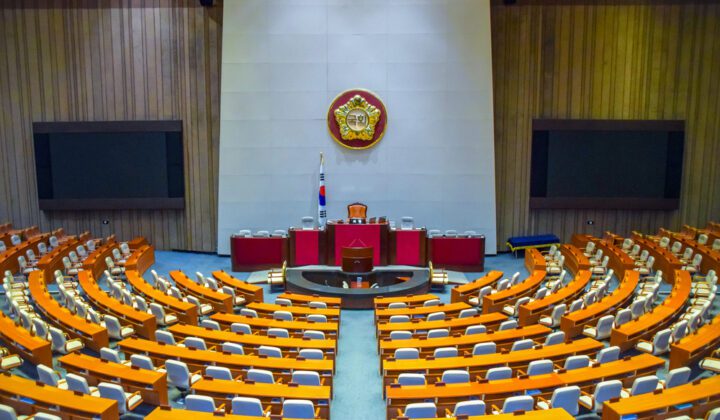Bipartisan legislation can mitigate some of the most egregious, obvious abuses of a second Trump term.
With Trump’s chances of returning to the White House essentially a coin flip, the time to start preparing our democracy for a second Trump presidency was years ago.
Since Trump left office, Congress and the Biden administration have taken some meaningful action. The Electoral Count Reform Act, passed in 2022, is by far the most prominent pro-democracy reform, and it should effectively forestall a vice-president-led coup like the one Trump encouraged Pence to initiate on January 6, 2021. The plot was always a long shot and may not have survived a challenge in the Supreme Court, but under the new regulations it shouldn’t even be a possibility.
Just this Wednesday, however, the Senate quietly agreed to a policy change which might prove even more important: a limit on the president’s ability to withdraw from NATO.
During his time in office, Trump repeatedly threatened to leave NATO, but never pulled the trigger.
“Someone was always there to talk him out of it. Bolton says he did; Jim Mattis, John Kelly, Rex Tillerson, Mike Pompeo, and even Mike Pence are thought to have done so too,” Anne Applebaum explained in the Atlantic. The next time around, the adults in the room will be nowhere to be found.
Recognizing this potential for abuse, a bipartisan coalition of senators led by Tim Kaine and Marco Rubio added a clause to the National Defense Authorization Act over the summer that clarified the president cannot withdraw from NATO without congressional approval. On Wednesday, the defense policy bill passed the Senate, including the updated regulation regarding leaving NATO.
Over the next year, Congress should make pro-institutional legislation like this its priority. Thankfully, curtailing the president’s ability to pull out of NATO is hardly the only vague and excessive power that most Democrats and Republicans in Congress would be happy to strip from the president. On a number of key issues, Trump has openly signaled his intentions to abuse the presidency. Congress must take him seriously and act accordingly.
1. Restrict Tariff Power
In Trump’s first term in office he declared a trade war with China. For his second term, he’s promised to go to war with the entire planet.
“When companies come in and they dump their products in the United States, they should pay, automatically, let’s say a 10 percent tax… I do like the 10 percent for everybody,” Trump said in a Fox Business interview in August. That universal 10 percent tariff would completely upend the established trade order, and Trump might just get away with it.
According to the Constitution, Congress has almost complete authority to regulate international trade and impose tariffs. Nevertheless, Trump has legal standing.
“Congress has effectively outsourced its trade-policy power to the White House in a series of laws over the past 60 years, while putting in place few guardrails or limits on the president’s authority,” according to financial journalist James Surowiecki. Under vague statutes in the Trade Expansion Act of 1962, the Trade Act of 1974, and the International Emergency Economic Powers Act of 1977, the president has been afforded exceptional authority over tariffs.
For the last half century, Congress has been willing to permit the president these powers, and the presidents have in turn acted with considerable restraint. And what reason did they have to act differently? The US turning on the free trade practices which made it into the world’s economic superpower is akin to an Olympic sprinter shooting himself in the foot. Trump plans on doing it anyway.
Thankfully, most congressional Republicans have no interest in cratering the American economy. A bipartisan bill—known as the Congressional Trade Authority Act of 2023–- introduced by Republican Representative Mike Gallagher and Democratic Representative Don Beyer on August 11, 2023 calls on Congress to re-assert its power over international trade. If passed, the Congressional Trade Authority Act would mandate the President to “submit to Congress any proposal to adjust imports in the interest of national security under Section 232 of the Trade Expansion Act of 1962.” Trump’s ability to unilaterally provoke a trade war would be seriously diminished.
2. Protect the Nonpartisan Civil Service
The president has the ability to appoint about 4,000 roles in the United States government. That number is so large and out of step with other democratic countries that experts have debated for years whether the president’s authority should be curtailed to appointing just a few hundred.
Trump has promised the exact opposite: replacing tens of thousands of career government officials with political appointees. During his first term, he almost went through with it.
13 days before the 2020 presidential election, Donald Trump quietly issued an executive order, Schedule F, giving himself wide latitude to reclassify government officials as political appointees and fire them without cause. More focused on overturning the election than remaking the federal government, Trump never followed through with his plans. Biden scrapped Schedule F on his third day in office.
But Schedule F is not dead. Trump has promised to bring it back if he returns to the White House, and his team is preparing for exactly that. Trump’s aides have identified 50,000 career civil service employees who could be fired and replaced. Meanwhile the Heritage Foundation is leading an initiative to create a database of 20,000 individuals to be appointed to government roles if a Republican wins in 2024.
In 2022, the House passed legislation to increase protections for civil servants, but it never made it through the Senate. In September, the Biden administration proposed new regulations through the Office of Personnel Management to the same effect. Nevertheless, these regulations could be overturned by a Trump presidency, acting more as a speedbump than a guardrail. Without additional congressional action, a purge of tens of thousands of civil servants is still on the table.
3. Restrain the Pardon
Trump did not use the pardon more than other recent presidents. In fact, during his time in office he pardoned 70 people and commuted the sentences of another 73, compared to Obama who issued 212 pardons and 1,715 commutations over his eight years.
The trouble with the power of the pardon, however, is not in how often it is used, but for what purpose. Trump has promised that in his next term, pardons will be deeply political and self-serving.
Regarding the January 6 rioters in 2022, Trump said, “I will tell you, I will look very, very favorably about full pardons. If I decide to run and if I win, I will be looking very, very strongly about pardons. Full pardons.” During his first term, Trump gave broad clemency to many of the people who allegedly committed crimes to benefit him, including Paul Manafort and Roger Stone. And while Trump recently said it is “very unlikely” that he would pardon himself if elected, he’s broached the idea before.
To really address the issue at its core, a constitutional amendment would be necessary. Democratic Representative Steve Cohen has introduced such a proposal each congress since Trump first became president, but the chance of a new amendment in the next year is close to zero.
More practically, Representative Adam Schiff proposed restrictions on the pardon through the Protecting Our Democracy Act. While it is popular among Democrats, passing the House in 2021, the bill enjoys negligible support among Republicans. For any hope of passing pardon reform, it would likely have to be spun off from the Protecting Our Democracy Act and put into another piece of legislation. Nevertheless, with the potential next president so likely to abuse his authority here, Democrats should be willing to negotiate with Republicans over what oversight may be mutually agreeable.
Biden’s Pro-Democracy Mandate
Looking back to 2020, it’s not hard to tell why Biden was able to win more votes than any candidate ever before, despite the fact that he had tried and failed to win the presidency as a younger, more exciting candidate. According to opinion polls, more of Biden’s supporters said they were voting to stop Trump than they were to back Biden.
The 2020 election was about Trump, both for his supporters and for his detractors. If Biden has a mandate, it is to restore normalcy to the presidency. A key legacy of the Biden presidency, then, must be to rein in the powers of the presidency bound to be abused, leaving the office more robust than when he inherited it.





